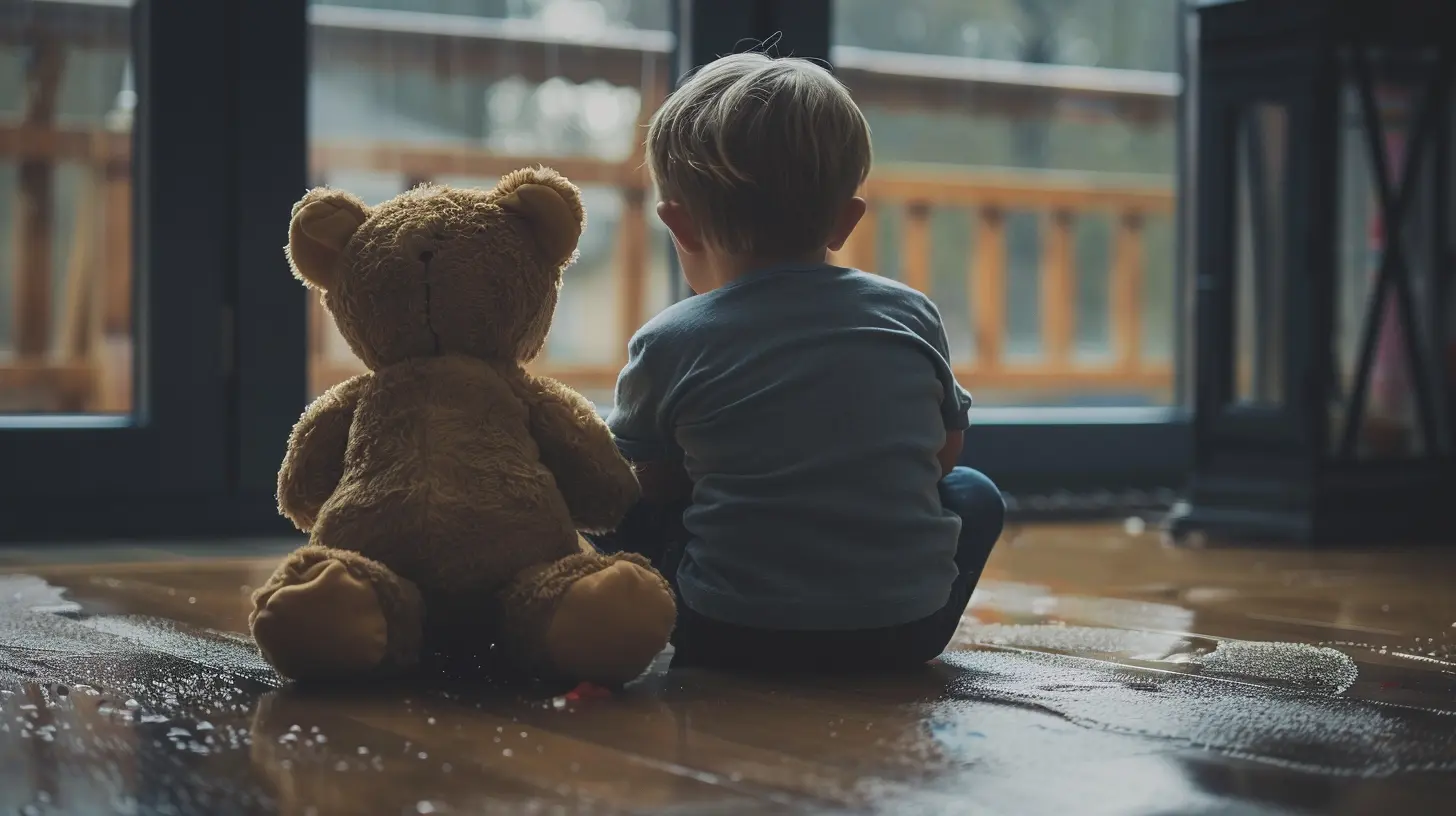How Early Childhood Trauma Affects Long-Term Development
16 August 2025
When it comes to understanding human behavior and mental health, one thing that can't be ignored is the impact of early childhood experiences. Specifically, early childhood trauma can have profound and long-lasting effects on an individual’s development. But what exactly happens to a child who experiences trauma, and how does it ripple through their life as they grow into adulthood?

What Is Early Childhood Trauma?
Before diving into the long-term effects, it's important to first understand what we mean by "early childhood trauma." Trauma refers to any kind of distressing or disturbing experience, and when it occurs during those formative years—typically before the age of six—it is referred to as early childhood trauma.This can involve a wide range of experiences, such as:
- Abuse: Physical, sexual, or emotional abuse.
- Neglect: Failing to provide basic needs like food, shelter, or emotional support.
- Witnessing Violence: Whether it's domestic violence or exposure to community violence.
- Loss of a Parent or Caregiver: This could be due to death, separation, or incarceration.
- Chronic Stress: This could stem from living in poverty, having a parent with mental illness or substance abuse issues, or enduring prolonged medical procedures.
The key point here is that children are incredibly vulnerable during their early years. Their brains are still developing, and they rely heavily on their caregivers for protection and emotional regulation. When trauma disrupts this, it can leave a lasting imprint on their development.
How Does Trauma Affect the Brain?
Imagine the brain as a house under construction. In the early years, the foundation is being laid, and the walls are being built. If a storm (in this case, trauma) hits before the structure is solid, the damage can be significant. Early childhood trauma has been shown to alter the architecture of a child's developing brain.Trauma often triggers a "fight or flight" response, which floods the body with stress hormones like cortisol and adrenaline. While this response is helpful in short bursts (say, if you're being chased by a lion), prolonged exposure to stress can wreak havoc on the brain.
The brain's ability to regulate emotions, process information, and develop social skills can be compromised. This can lead to a variety of long-term consequences that affect everything from emotional well-being to physical health.

Long-Term Effects of Childhood Trauma
So, how does early childhood trauma actually affect long-term development? Let’s break it down into four major areas: emotional, cognitive, behavioral, and physical.1. Emotional Development
One of the most profound effects of early trauma is on emotional development. A child who experiences trauma may have difficulty forming secure attachments with caregivers. This is because trauma disrupts the trust and safety that are crucial for healthy emotional bonding.Children who grow up in traumatic environments may develop what’s called insecure attachment—either becoming overly clingy and dependent or emotionally detached and avoidant. In adulthood, this can manifest in difficulty forming close relationships, a fear of abandonment, or an inability to trust others.
Emotional Dysregulation is another common outcome. People who experience early trauma might struggle to manage their emotions effectively. They might experience intense mood swings, anxiety, depression, or even have difficulty recognizing their own emotions. This can make navigating work, relationships, and day-to-day life much more challenging.
2. Cognitive Development
Cognitive development refers to how we think, learn, and process information. Trauma can significantly affect this area of development as well. Children who have been exposed to trauma often show delays in language development, problem-solving abilities, and memory.The constant state of stress that trauma induces can impair the brain's ability to concentrate and retain information. This can make school particularly difficult, leading to poor academic performance and low self-esteem. Some children may even be misdiagnosed with learning disabilities when, in fact, their struggles stem from unresolved trauma.
By adulthood, the cognitive effects can persist. Many adults who experienced early trauma report difficulty making decisions, focusing on tasks, or handling complex situations.
3. Behavioral Development
Behavioral issues are another significant consequence of early childhood trauma. Children who have faced trauma are more likely to exhibit:- Aggression or violent outbursts
- Impulsivity and risk-taking behaviors
- Withdrawal and isolation
- Self-harm or substance abuse
These behaviors are often coping mechanisms to manage the overwhelming emotions and stress they feel. Unfortunately, without intervention, these behaviors can continue into adulthood, leading to difficulties in maintaining stable relationships, holding steady jobs, or avoiding legal trouble.
It’s also worth noting that not all children react the same way. Some may become hyper-independent and resist help, while others may become overly dependent and clingy. Trauma affects everyone differently, but the common thread is that it alters normal behavioral patterns.
4. Physical Health
The mind and body are deeply interconnected, and trauma doesn't just affect mental health—it also takes a toll on physical health. Children who experience trauma have higher rates of chronic health issues like asthma, obesity, heart disease, and even cancer later in life.This is due in part to the chronic stress that trauma causes. Stress hormones like cortisol can weaken the immune system, increase inflammation in the body, and contribute to unhealthy lifestyle choices, such as poor eating habits or substance abuse.
Additionally, individuals who experienced trauma in childhood are more likely to engage in risky behaviors such as smoking, excessive drinking, or drug use, which further contributes to poor health outcomes.

The Role of Resilience
It’s important to note that not everyone who experiences early trauma is doomed to a life of struggle. In fact, many people who go through traumatic experiences in childhood go on to live healthy, fulfilling lives. The key factor here is resilience.Resilience is the ability to bounce back from adversity. Some children are naturally more resilient than others, but resilience can also be cultivated through supportive relationships, therapy, and coping strategies. A strong, consistent relationship with a caregiver, teacher, or mentor can make all the difference in helping a child overcome the effects of trauma.
In other words, trauma isn’t a life sentence. With the right support, intervention, and coping strategies, individuals can heal and thrive.

Healing from Childhood Trauma
So, how does one heal from early childhood trauma? The journey is different for everyone, but there are several steps that can help:1. Therapy
Therapy is one of the most effective ways to address childhood trauma. Different types of therapy, such as cognitive-behavioral therapy (CBT), trauma-focused therapy, and eye movement desensitization and reprocessing (EMDR), are specifically designed to help individuals process and heal from traumatic experiences.By working with a trained therapist, individuals can learn to reframe their experiences, develop healthier coping mechanisms, and start to build emotional resilience.
2. Mindfulness and Self-Care
Mindfulness practices, such as meditation and yoga, can be incredibly helpful for individuals dealing with trauma. These practices help individuals stay grounded in the present moment and reduce the stress and anxiety that often accompany trauma.Self-care is equally important. Engaging in activities that promote physical and emotional well-being, such as exercise, healthy eating, and adequate sleep, can significantly improve overall mental health.
3. Support Systems
Having a strong support system is vital for healing. Whether it’s family, friends, or a support group, having people who can offer love, understanding, and encouragement can make a huge difference in the recovery process.4. Education
Understanding trauma is a key step in overcoming it. Many people don't fully realize the impact that early trauma has had on their lives until much later. By educating themselves about trauma and its effects, individuals can start to make sense of their experiences and take steps to heal.Final Thoughts
Early childhood trauma can have far-reaching effects on long-term development, influencing everything from emotional and cognitive functioning to physical health and behavior. However, it’s important to remember that trauma doesn’t define a person’s future. With the right support, intervention, and resilience, individuals can overcome the challenges of their past and build a brighter future.Trauma may leave scars, but those scars do not have to dictate the rest of one’s life.
all images in this post were generated using AI tools
Category:
Child DevelopmentAuthor:

Alexandra Butler
Discussion
rate this article
1 comments
Zephyrian Huffman
This article compellingly highlights the profound impact of early childhood trauma on long-term development. Understanding these connections is crucial for fostering resilience and promoting effective therapeutic interventions for affected individuals.
August 22, 2025 at 4:25 AM

Alexandra Butler
Thank you for your insightful comment! I'm glad you found the article highlights the importance of addressing early childhood trauma for long-term well-being.


